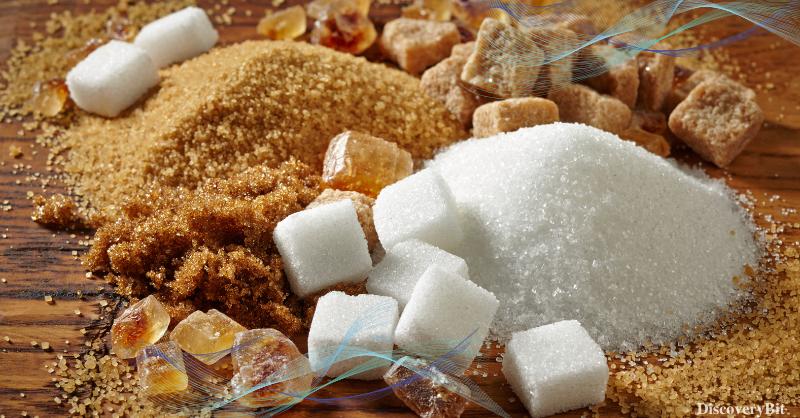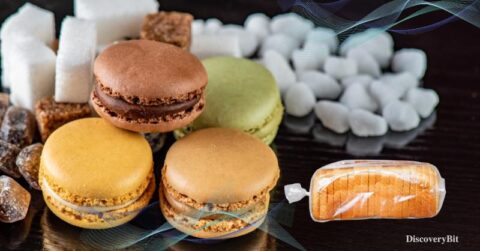In the realm of non-infectious diseases, claiming over 35 million lives annually, the World Health Organization (WHO) identifies tobacco, alcohol, and diet as major contributors to the surge in non-communicable illnesses. While smoking and alcohol face tight global regulations for public health protection, a significant concern persists unchecked: the rising consumption of added sugars.
Over the last half-century, added sugar intake has tripled in the developed world, sounding an alarming note. Yet, a substantial segment of the medical community tends to downplay the toxic nature of sugar, focusing instead on fats and salts as primary culprits in human health decline.
A mounting body of evidence establishes a compelling link between dietary added sugars and heightened risks of obesity, diabetes, cardiovascular issues, cancer, and various chronic diseases. Unregulated sugar consumption poses a substantial global health threat for several reasons.
Firstly, sugar is nearly unavoidable, saturating modern Western diets through processed foods and severely limiting consumer choice.
Secondly, sugar proves highly toxic, with epidemiological and statistical data highlighting its potential to induce metabolic disorders and harm health, comparable to the impact of alcohol on the liver.
Lastly, sugar’s addictive nature is underscored by its influence on neurological pathways, triggering compulsive behaviors and inhibiting dopamine signaling in the brain’s reward center, leading to escalating consumption.
Despite mounting evidence against unregulated sugar intake, its widespread appeal and affordability drive food manufacturers worldwide to turn a blind eye to the potential health crisis.
Amidst this backdrop, the current health-conscious era has witnessed a surge in the quest for healthier lifestyle choices, prompting individuals to explore alternatives to traditional sugars. The demand for healthy sugar alternatives has been on the rise, fueled by concerns about the detrimental impact of excessive sugar consumption on overall well-being. This extends from diabetics seeking sugar substitutes to those aiming to enhance their daily coffee or tea rituals, resulting in a diversified market for sugar alternatives catering to various dietary needs.
For individuals managing diabetes, navigating the world of sweeteners can be a challenging feat. Fortunately, a range of sugar alternatives tailored for diabetics has emerged, providing sweet indulgence without compromising blood sugar levels. These alternatives not only satiate the sweet tooth but also offer a safer option for those with specific health considerations.
Coffee and tea enthusiasts need not sacrifice flavor for health, as a plethora of options now exists to sweeten these beloved beverages. Whether one prefers the robust kick of coffee or the soothing warmth of tea, there are healthy sugar alternatives seamlessly integrated into these daily rituals. These alternatives contribute not only to a more balanced diet but also allow individuals to savor their favorite drinks guilt-free.
Embarking on an exploration of healthy sugar alternatives, we will delve into the diverse landscape of sweeteners, examining their benefits and suitability for different preferences and dietary requirements. Join us on this journey to discover how these alternatives are transforming the way we sweeten our lives, one cup at a time.
Understanding Sugar:
Sugar encompasses a range of simple carbohydrates, with sucrose (white table sugar) being the most familiar. However, there are other natural sugars found in foods such as fruits, vegetables, grains, and dairy products. These include fructose, galactose, glucose, lactose, and maltose. Despite being essential for bodily functions, an excess of certain sugars can lead to various health issues.
The Nuances of Sugar Consumption:
The critical distinction lies in differentiating between added sugars and naturally occurring sugars. Processed foods, laden with added sugars, contribute to health problems such as high blood sugar, insulin resistance, metabolic syndrome, dental issues, increased triglycerides, obesity, and type 2 diabetes. On the other hand, natural sources like fruit, honey, molasses, and maple syrup bring not only sweetness but also nutritional benefits, including fiber, vitamins, and antioxidants
Exploring Sugar Substitutes:
For those seeking alternatives to sugar, the market offers a variety of sugar substitutes falling into three categories: A) artificial sweeteners, B) sugar alcohols, and C) novel sweeteners.
A) Artificial Sweeteners
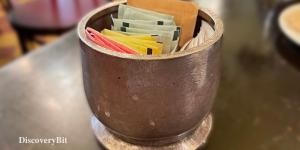 These sweeteners, often lab-created, can be significantly sweeter than table sugar without the added calories. The FDA regulates them as food additives, and they are commonly found in products labeled as “sugar-free,” “keto,” “low carb,” or “diet.”
These sweeteners, often lab-created, can be significantly sweeter than table sugar without the added calories. The FDA regulates them as food additives, and they are commonly found in products labeled as “sugar-free,” “keto,” “low carb,” or “diet.”
Artificial sweeteners, touted as healthy sugar alternatives, have become ubiquitous in various foods, beverages, and even sanitary products like mouthwashes worldwide. Positioned as low-calorie options, artificial sweeteners are highly sought after by the dietary product industry. However, a growing body of evidence questions the presumed health benefits of these sugar substitutes, suggesting that they may not be as virtuous as initially believed.
Clinical data abound, revealing a range of adverse side effects associated with artificial sweeteners. From common symptoms like headaches and migraines to more serious conditions such as cardiovascular disease and cancer, the drawbacks are substantial. The most widely used artificial sweeteners come under scrutiny for their potential health risks:
1) Acesulfame Potassium (ACE-K): Introduced in the 1980s, ACE-K is 200 times sweeter than sugar. Concerns have been raised about its potential carcinogenicity, explicitly linking it to mood disorders and decreased liver and kidney function.
2) Aspartame: Prevalent in soft drinks and medicine, aspartame, 200 times sweeter than sugar, has been associated with impaired memory, reduced cognitive function, and increased oxidative stress in the brain. Pregnant mothers consuming aspartame have shown a higher incidence of metabolic syndrome disorders in their babies.
3) Saccharin: One of the earliest artificial sweeteners, saccharin, found in products ranging from toothpaste to canned vegetables, is nearly 500 times sweeter than sugar. It has been linked to digestive disorders, tachycardia, and alarmingly, bladder cancer.
4) Sucralose: Sucralose is approximately 600 times sweeter than sugar. Despite being widely used in various food and beverage products, sucralose has faced scrutiny. Some studies suggest a potential link to disruptions in gut microbiota, which play a crucial role in overall health. Additionally, concerns have been raised about its impact on glucose metabolism, which is a crucial aspect for individuals, especially those seeking sugar alternatives for diabetics.
5) Neotame: Neotame is approximately 7,000 to 13,000 times sweeter than sugar. Although neotame is a high-intensity sweetener, its use is limited compared to other sweeteners due to its potency. While it is considered safe for consumption, individuals with phenylketonuria (PKU), a rare genetic disorder, should be cautious as neotame contains phenylalanine.
6) Cyclamate: Cyclamate is about 30 to 50 times sweeter than sugar. Cyclamate has been banned in the United States since the 1970s due to concerns about its potential carcinogenicity. However, it is still used in some countries. The ban underscores the importance of understanding the regulatory landscape and potential health risks associated with sugar alternatives.
The dark side of artificial sweeteners challenges the perception of these products as a healthy sugar alternative. However, while concerns about health hazards persist, research on humans has generally shown some of these artificial sweeteners to be safe when consumed within acceptable daily limits.
B) Sugar Alcohols:
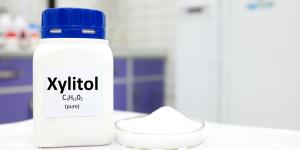 Synthetically derived from sugars, sugar alcohols are used in many processed foods. Though not as sweet as artificial sweeteners, they add texture and taste. They also offer a variety of options for those seeking sweetness without the drawbacks associated with traditional sugars. While they can cause gastrointestinal irritation in some individuals, they must be listed on nutrition labels.
Synthetically derived from sugars, sugar alcohols are used in many processed foods. Though not as sweet as artificial sweeteners, they add texture and taste. They also offer a variety of options for those seeking sweetness without the drawbacks associated with traditional sugars. While they can cause gastrointestinal irritation in some individuals, they must be listed on nutrition labels.
Examples include:
1) Xylitol: Xylitol, a non-fermentable sugar alcohol, stands out as a versatile sweetener. It seamlessly substitutes for sugars and artificial sweeteners in diverse recipes, harmonizing well with other ingredients. Known for its dental benefits and low glycemic index, xylitol is an ideal choice for those looking to manage blood sugar levels. Its natural occurrence in fruits and vegetables adds to its appeal as a healthier sugar alternative.
2) Erythritol: Erythritol, another popular sugar alcohol, is naturally found in certain fruits and fermented foods. With a cooling sensation similar to mint, it provides sweetness without the calorie load of sugar. Erythritol does not affect blood sugar levels and is well-tolerated by the digestive system. As a result, it serves as an excellent option for diabetics and those seeking a healthy sugar substitute for their coffee or tea.
3) Isomalt: Isomalt, a synthetic sugar alcohol derived from beets, is often used in sugar-free candies and confections. It has a taste and texture similar to sugar, making it a suitable replacement in various sweet treats. While isomalt is lower in calories than sugar, it may cause gastrointestinal discomfort in some individuals. Nevertheless, its ability to withstand high temperatures makes it an attractive choice for baking.
4) Lactitol: Lactitol, a sugar alcohol derived from lactose, is a mild sweetener with about 40% of the sweetness of sucrose. As a low-calorie alternative, lactitol is commonly used in sugar-free and diabetic-friendly products. Its slower absorption in the digestive tract contributes to its low impact on blood sugar levels, making it a suitable choice for those managing diabetes.
5) Maltitol: Maltitol, derived from maltose, is often used in sugar-free chocolates, candies, and baked goods. While it provides a taste and texture similar to sugar, maltitol has a higher calorie content than some other sugar alcohols. It may also have a laxative effect in high amounts, so moderation is key. Maltitol can be incorporated into a diabetic-friendly diet, but careful monitoring of intake is advised.
6) Sorbitol: Sorbitol, naturally found in fruits and berries, is widely used as a sugar substitute in various products. It has a sweetness level similar to sucrose and is often used in sugar-free gums, candies, and dental products. However, excessive consumption of sorbitol may lead to gastrointestinal issues, including bloating and diarrhea. Diabetics should be cautious about sorbitol intake due to its impact on blood sugar levels.
C) Novel ‘Natural’ Sweeteners
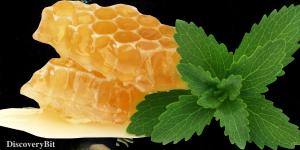 In our pursuit of healthier dietary choices, the drawbacks associated with artificial sweeteners prompt a search for natural sugar alternatives that not only satiate our sweet tooth but also contribute to overall well-being. Recognizing that most artificial sweeteners lack substantial benefits, we present a curated list of 16 healthy alternatives to sugars and artificial sweeteners that are generally regarded as safe by the FDA and are considered healthier alternatives due to their minimal impact on weight gain and blood sugar. Derived from natural sources, novel sweeteners, also known as “plant-derived noncaloric sweeteners,” offer benefits of both artificial and natural sweeteners. These natural alternatives promise to bring sweetness to our palates without compromising on health.
In our pursuit of healthier dietary choices, the drawbacks associated with artificial sweeteners prompt a search for natural sugar alternatives that not only satiate our sweet tooth but also contribute to overall well-being. Recognizing that most artificial sweeteners lack substantial benefits, we present a curated list of 16 healthy alternatives to sugars and artificial sweeteners that are generally regarded as safe by the FDA and are considered healthier alternatives due to their minimal impact on weight gain and blood sugar. Derived from natural sources, novel sweeteners, also known as “plant-derived noncaloric sweeteners,” offer benefits of both artificial and natural sweeteners. These natural alternatives promise to bring sweetness to our palates without compromising on health.
1) Raw Honey: A natural sweetener, unprocessed honey stands out among healthy sugar alternatives. Its antibacterial and antifungal properties make it a holistic addition to our culinary choices. Packed with powerful antioxidants and nutrients, it’s a great choice for tea or coffee, offering a delicious and nutritious alternative.
2) Agave Nectar: Derived from a plant akin to the one used in Tequila distillation, agave nectar boasts a high fructose content. Moderation is key, as the body can convert it to glucose. Ideal for diabetics, agave nectar is a low-glycemic sweetener. With a sweeter taste than sugar, it’s a perfect addition to your favorite beverages, ensuring a healthier option.
3) Maple Syrup: Embrace the rich flavor of maple syrup as a natural sweetener. Utilized for centuries, authentic maple syrup is a natural alternative to sugar. Not only does it enhance your tea or coffee, but it also provides essential minerals, making it a healthy alternative to traditional sugar. Caution is advised against counterfeit products made from high fructose corn syrup.
4) Balsamic Syrup: Crafted by reducing balsamic vinegar, balsamic syrup not only serves as a tasty sugar alternative but also offers digestive health benefits due to its high pepsin content. This unique sugar alternative adds depth to your beverages while offering a distinctive taste. A great choice for those looking beyond standard sugar options.
5) Apple Sauce: Discover a fruity twist with apple sauce. Homemade applesauce emerges as an excellent alternative, particularly in baking endeavors. As a sugar substitute, it brings sweetness to your drinks and dishes, making it an excellent choice for those seeking a healthier lifestyle. Be wary of store-bought versions that may contain added sugars.
6) Allulose: Naturally occurring in small quantities in certain fruits, allulose offers sweetness without the calories. With minimal impact on blood sugar, it’s a promising option for healthy sugar alternatives in coffee and tea. A low-calorie sugar alternative, allulose is diabetic-friendly. Enjoy the sweetness without the guilt, as it doesn’t spike blood sugar levels, providing a safe choice for all.
7) Sorghum Syrup: Made from sweet sorghum grass, sorghum syrup adds a delightful touch to biscuits, pancakes, and cereals. Rich and robust, sorghum syrup offers a unique sweetness. Ideal for tea or coffee enthusiasts, it serves as a wholesome sugar alternative, adding depth to your favorite beverages.
8) Stevia: Embrace the plant-based sweetness of stevia. Extracted from stevia plant leaves, Stevia serves as a non-fermentable alternative to artificial sweeteners, boasting sweetness almost 150 times that of sugar. With zero calories and diabetic-friendly properties, it’s a perfect addition to your coffee or tea, ensuring a guilt-free indulgence in a healthier sweetener.
9) Palm Sugar: Sustainably sourced from palm tree sap, palm sugar contains essential vitamins and minerals, presenting a natural and flavorful nutritious alternative. Enhance your beverages with its unique taste, making it a healthier choice for those seeking healthier alternatives to refined sugar.
10) Dates: Nature’s candy, dates bring a natural sweetness to your tea or coffee. Pureed dates offer a delicious and natural alternative, rich in fiber, minerals, and Vitamin B, elevating the nutritional profile.
11) Raisins: High in natural sugars, organic raisins can be blended or pureed, serving as a wholesome natural sweetener. Packed with natural sweetness and nutrients, they make a delightful addition to tea or coffee, offering a guilt-free option.
12) Molasses: Embrace the richness of molasses as a natural sweetener. Extracted by boiling away fructose from raw sugar, molasses, with its dark and thick consistency, proves to be a delectable and healthy alternative. With its robust flavor and mineral content, it’s an ideal choice for coffee or tea, providing a healthier alternative to refined sugar.
13) Bananas: Nature’s candy, overripe bananas, when pureed, create a sweet and healthy sugar alternative, showcasing the versatility of this fruit. A perfect sugar alternative for tea or coffee, bananas are rich in vitamins and fiber, offering a delicious and healthy option.
14) Fruit Juice: Infuse your drinks with the sweetness of fruit juice. Natural fruit juice, rich in fructose, adds sweetness to recipes while offering a plethora of powerful antioxidants and vitamins. As a natural sugar alternative, it adds a fruity twist to your tea or coffee, ensuring a refreshing and healthier choice.
15) Monk Fruit: Indulge in the sweetness of monk fruit – a diabetic-friendly sugar alternative. Also known as Luo Han Guo, monk fruit, native to China and Thailand, yields a syrup 300 times sweeter than sugar. Apart from its sweetening prowess, it brings a host of anti-inflammatory benefits. With zero calories and a natural origin, it’s perfect for coffee or tea, providing a guilt-free option for those mindful of their health
16) Tagatose: Derived from dairy, tagatose is a low-calorie sweetener with about 90% of the sweetness of sucrose. Suitable for diabetics, it serves as a healthy alternative in various beverages and recipes.
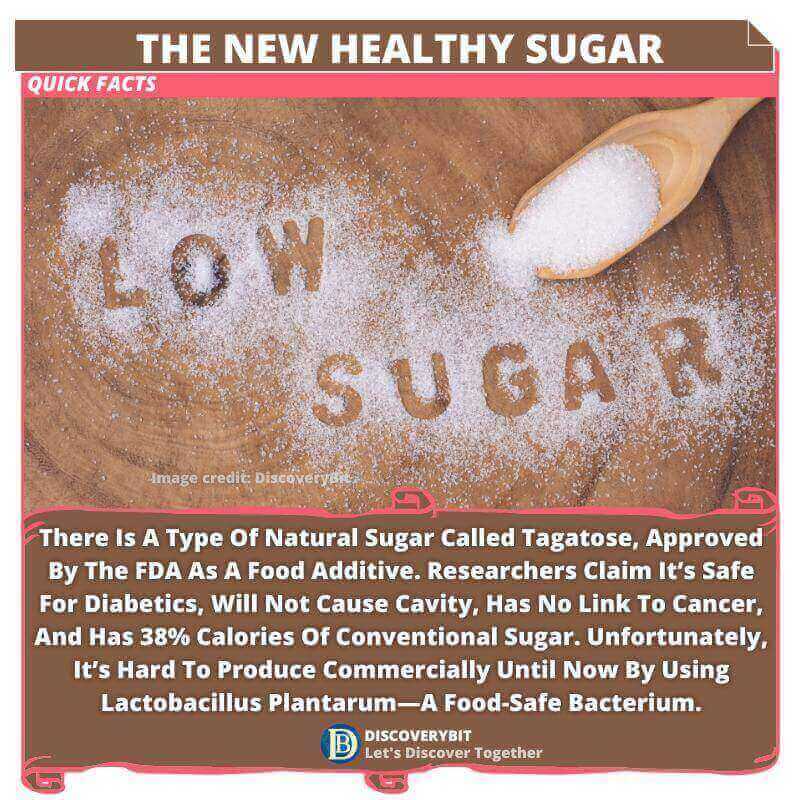
How To Lower Blood Sugar Naturally: Your Quick Guide
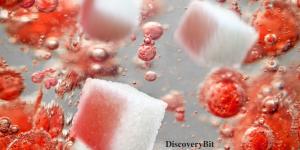 In the pursuit of healthy sugar alternatives, it’s crucial to manage blood sugar levels, especially for individuals with diabetes. High blood sugar, or hyperglycemia, is associated with diabetes and prediabetes, affecting nearly 50% of all U.S. adults.
In the pursuit of healthy sugar alternatives, it’s crucial to manage blood sugar levels, especially for individuals with diabetes. High blood sugar, or hyperglycemia, is associated with diabetes and prediabetes, affecting nearly 50% of all U.S. adults.
Your body regulates blood sugar through insulin, a vital hormone. Internal factors, like excess liver glucose production or insulin resistance, and external factors, such as dietary choices and a sedentary lifestyle, can disrupt this balance. Understanding these factors is essential for effective blood sugar management.
Here are evidence-backed strategies to naturally lower blood sugar:
1) Exercise Regularly: Regular exercise promotes weight management and increases insulin sensitivity, helping cells use blood sugar effectively. Exercise snacks, short activity breaks throughout the day, contribute to better blood sugar control.
2) Manage Carb Intake: Carbohydrate intake significantly influences blood sugar levels. Monitoring and controlling carb intake, prioritizing whole grains, can aid blood sugar regulation.
3) Eat More Fiber: Fiber slows carb digestion, promoting a gradual rise in blood sugar. High-fiber foods like vegetables, fruits, legumes, and whole grains enhance blood sugar management.
4) Drink Water and Stay Hydrated: Proper hydration helps flush excess sugar through urine, reducing the risk of high blood sugar. Opt for water and zero-calorie drinks, avoiding sugary beverages.
5) Implement Portion Control: Regulating portion sizes aids calorie management, promoting healthy blood sugar levels. Use smaller plates, measure portions, and avoid all-you-can-eat settings.
6) Choose Low Glycemic Index Foods: Opt for foods with a low glycemic index, reducing the speed at which carbs break down and blood sugar rises. Pairing with protein or healthy fats minimizes blood sugar spikes.
7) Manage Stress Levels: Stress influences hormones that raise blood sugar. Incorporate relaxation methods like exercise, yoga, or mindfulness to support blood sugar regulation.
8) Monitor Blood Sugar Levels: Regularly check blood glucose levels to adjust meals and medications accordingly. Keeping a log helps understand how your body responds to different foods and activities.
9) Get Enough Quality Sleep: Adequate sleep positively impacts blood sugar levels and insulin sensitivity. Establishing good sleep habits contributes to overall health.
10) Eat Foods Rich in Chromium and Magnesium: Chromium and magnesium play roles in blood sugar regulation. Include foods like meats, whole grains, dark leafy greens, and nuts in your diet.
11) Consider Adding Specific Foods to Your Diet: Certain foods like apple cider vinegar, cinnamon, and berberine are believed to have anti-diabetic effects. However, consult with a healthcare professional before incorporating them into your diet.
12) Maintain a Moderate Weight: Maintaining a moderate weight supports healthy blood sugar levels and reduces the risk of diabetes. Even a small weight reduction can lead to significant improvements.
13) Eat Healthy Snacks More Frequently: Spreading meals and snacks throughout the day helps avoid blood sugar spikes or drops. Smaller, more frequent meals can improve insulin sensitivity.
14) Eat Probiotic-Rich Foods: Probiotics in fermented foods, such as yogurt and sauerkraut, offer health benefits, including improved blood sugar regulation. Consuming multiple species of probiotics over eight weeks may show significant improvements.
Incorporating these strategies into your lifestyle can contribute to effective blood sugar management and promote overall health
Conclusion:
In the quest for a healthier lifestyle, understanding sugar and its alternatives is paramount. By making informed choices about sugar sources and incorporating healthy alternatives, individuals can enjoy sweet flavors without compromising their well-being. Whether for diabetics, coffee enthusiasts, or tea lovers, the world of healthy sugar alternatives offers a diverse array of options to suit various preferences and dietary needs
Reference:
- http://www.who.int/gho/ncd/mortality_morbidity/ncd_total_text
- Johnson, Rachel K., et al. “Dietary sugars intake and cardiovascular health: a scientific statement from the American Heart Association.” Circulation 120.11 (2009): 1011-1020.
- Reiser, S. “Effect of dietary sugars on metabolic risk factors associated with heart disease.” Nutrition and health 3.4 (1985): 203-216.
- Frayn, Keith N., and Susan M. Kingman. “Dietary sugars and lipid metabolism in humans.” The American journal of clinical nutrition 62.1 (1995): 250S-261S.
- Johnson, Richard J., et al. “Potential role of sugar (fructose) in the epidemic of hypertension, obesity and the metabolic syndrome, diabetes, kidney disease, and cardiovascular disease–.” The American journal of clinical nutrition 86.4 (2007): 899-906.
- Morgan, Robert W., and Meera G. Jain. “Bladder cancer: smoking, beverages and artificial sweeteners.” Canadian Medical Association Journal 111.10 (1974): 1067.
- Weihrauch, M. R., and V. Diehl. “Artificial sweeteners—do they bear a carcinogenic risk?.” Annals of Oncology 15.10 (2004): 1460-1465.
- Swithers, Susan E. “Artificial sweeteners produce the counterintuitive effect of inducing metabolic derangements.” Trends in Endocrinology & Metabolism 24.9 (2013): 431-441.
- Chattopadhyay, Sanchari, Utpal Raychaudhuri, and Runu Chakraborty. “Artificial sweeteners–a review.” Journal of food science and technology 51.4 (2014): 611-621.
- Boushey, Carol J., et al., eds. Nutrition in the Prevention and Treatment of Disease. Elsevier, 2001.
Tags: Acesulfame Addiction Agave Nectar Apple Sauce Aspartame Balsamic Syrup Bananas Cardiovascular Problems Dates Fruit Juice Health healthy sugar alternatives healthy sugar alternatives for tea Maple Syrup Molasses Obesity Palm Sugar Raisins Raw Honey Saccharin Sorghum Syrup Stevia Sugar sugar alternatives sugar alternatives for coffee sugar alternatives for diabetics Sugar substitutes Xylitol

